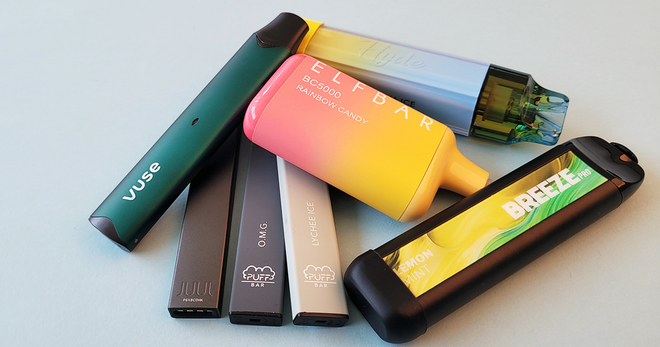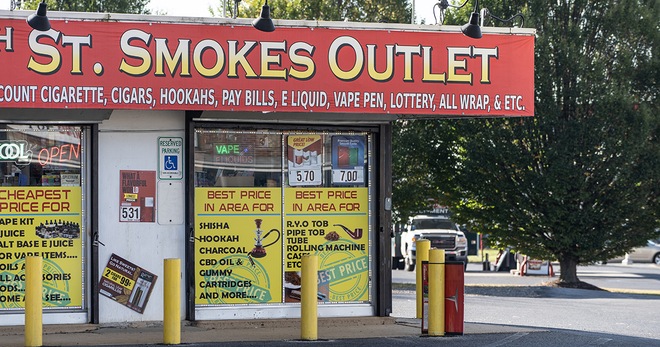How the tobacco industry is renewing its assault on science
The tobacco industry has reinvigorated its efforts to infiltrate scientific spaces and mislead the public, according to a Truth Initiative® editorial in the American Journal of Public Health that exposes tactics that mirror those the industry used for decades to deceive the public about the health risks of cigarettes.
Industry efforts include sponsoring entire issues of prestigious research journals and participating in tobacco control research conferences, where they present tobacco industry-sponsored research alongside independent, credible public health research, and gain critical insight into tobacco control evidence and strategy. The authors call for strengthening practices to protect scientific research from tobacco industry influence on scientific and regulatory efforts.

New products, old tricks
The tobacco industry’s efforts to insert themselves into scientific discourse is nothing new. The tobacco industry knowingly hid the truth about the impact of cigarettes for decades by spinning a narrative of doubt around the health risks of smoking, donating to politicians who would oppose greater regulations, and funding research designed to undercut objective scientific findings to protect profits, the authors write.
While the landmark 1998 Master Settlement Agreement forbid tobacco companies from engaging in practices that conceal health risks and ended tobacco industry-funded “research” groups designed to discredit the evidence between smoking and cancer, history appears to be repeating itself with new industry-funded efforts working to shape public discourse.
Latest efforts include egregious steps that cloud the truth about newer products like e-cigarettes. For example:
- Phillip Morris International (PMI), the makers of Marlboro, funded the research group the Foundation for a Smoke-Free World in 2017, which has since worked to infiltrate scientific spaces and shape public discourse. The foundation published articles in established research journals by evading conflict of interest policies or by obscuring their role in funding.
- The makers of the popular e-cigarette JUUL recently sponsored an entire special issue of the American Journal of Health Behavior to showcase their industry-funded research.
Giving tobacco-industry research false credibility – and an edge
Allowing tobacco industry research in scientific publications and conferences has major consequences. It gives tobacco industry-sponsored research a false equivalence with independent, credible public health research, allowing them to showcase their work to federal regulators. Industry participation at academic conferences and other scientific arenas provides critical insight into tobacco control evidence and strategy, which the tobacco industry can then use to counter science-based policy initiatives.
Claiming “harm reduction” as a business strategy
Infiltrating scientific spaces is a key part of the industry’s strategy, detailed in the 2019 Truth Initiative report “Spinning a New Tobacco Industry,” to recast its public image and protect its bottom line at the expense of public health. As e-cigarettes put a new generation at risk of nicotine addiction and the industry continues to innovate with new products, tobacco companies are mounting a campaign to try to transform their image with non-combustible tobacco products and claims that they can be part of the “public health solution” to end smoking.
These efforts aren’t limited to scientific spaces: PMI had former and current CEOs appear on CNBC, Bloomberg, the Harvard Business Review and purchased media placements in the Wall Street Journal and the Washington Post. These opportunities gave the company platforms to claim that they care about reducing harm and improving public health while continuing to sell traditional tobacco products that continue to make smoking the country’s leading cause of preventable death and disease.
“These efforts can all serve to shift public perceptions of the tobacco industry, subtly directing the general public into believing the tobacco industry’s pretense that it can be part of the public health solution to end smoking,” the authors write.
Measures to prevent continued industry interference are key
Recognizing that the tobacco industry’s participation in scientific spaces sows confusion and grants the tobacco industry credibility is the first step in preventing future occurrences. However, researchers, journals, and regulatory agencies must do more to protect the integrity of scientific research, including the following recommendations by the authors:
- Journals should require standardized reporting of conflicts of interests and funding and adopt author databases that keep financial interests transparent.
- Tobacco researchers should keep research conferences free from industry participation and refuse to participate in forums with industry personnel.
- Regulatory agencies must rely on independent, rather than industry-sponsored, study findings to assess population-level health impacts of new tobacco products before bringing them to market.
“The public, the scientific community, the media, and decision-makers alike must uphold a skeptical view of any efforts by the tobacco industry that seek to influence scientific and regulatory efforts, particularly those that could serve to reduce their profits,” the authors write.
More in tobacco industry marketing
Want support quitting? Join EX Program
By clicking JOIN, you agree to the Terms, Text Message Terms and Privacy Policy.
Msg&Data rates may apply; msgs are automated.


